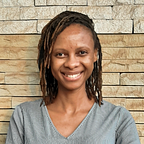Poverty that Doesn’t Look Like Poverty
I work in a public hospital. One thing that does to you is it gives you a front seat to the true state of society. You start to notice things you wouldn’t have bothered with before.
One such thing for me is the faces of poverty. Over time, I have begun to notice indicators of poverty that I hadn’t thought of previously.
Burns
Something as ordinary as a burn is a marker of poverty.
The circumstances in which most people get burned are related to poverty. In winter, people get burnt because they huddle around the charcoal-burner for warmth.
Some use candles for lighting. In the hands of a child, this can easily fall and cause a fire or burn the child.
Some people cook on an open fire using firewood. Epileptics whose fits are triggered by flashing lights frequently fall into the fire while cooking. They sustain some of the worst burns or lose their lives.
With food being cooked at ground level, the hot pots with porridge, oil or relish can fall and the hot contents spill onto whoever is sitting next to the fire.
There was a year petrol was scarce and people stored petrol in their homes. The number of burns went up as fires from the petrol became common.
Burns at the workplace occur where workplace safety is compromised or the response system for an injury at the workplace is disorganized or slow.
Every single one of these circumstances speaks of a lack of access to decent homes, clean energy, amenities or basic needs for day-to-day life.
Getting burnt is one thing. Getting to a hospital and getting appropriate treatment on time is another. It needs resources at every level of the chain to save lives and reduce the amount of disability from burn injuries.
Premature Deaths
I listen to many conversations where people talk about their backgrounds. It strikes me how many people grew up as orphans or with a single parent. These are random people in my circles who are not necessarily desperately poor.
The same strikes me when I listen to celebrities being interviewed — random musicians, actors, comedians, and sports personalities. When they talk about where they came from, I am amazed at how many of them grew up poor without one or both parents or being raised by relatives.
This is so common that is thought of as normal.
When I ask women how many children they have, too many of them first tell me the number of children they have given birth to and then the number of children that are living. The same happens in obstetrics, where the number of times a woman has gotten pregnant is often more than the number of pregnancies that ended in a child that lived.
Death is accepted as “fate” more often here than it is elsewhere. The worst thing is that most of these are deaths of young people.
Poverty shortens lifespans.
Being born poor is making an attempt at life. There is no guarantee that you will grow into an adult. There are too many threats to life — deaths at birth, deaths in infancy from respiratory infections or diarrhoea; childhood deaths from malaria, deaths related to pregnancy and childbirth, and adult deaths from any of the common infections or the many complications of non-infectious diseases. And there is a constant threat of accidents that maim or kill. The circumstances in which accidents occur or response systems fail multiply when resources are little.
Poor people, if they survive childhood, live short and difficult lives.
Poverty makes people disposable. They die and no one notices.
Avoidable premature deaths are not fate; they are avoidable deaths.
Dignity
Dignity is the minimum standard you decide you will hold yourself to and which others must follow.
Debilitating poverty robs you both of dignity and standards because you are at the mercy of those that choose to help you.
Poverty is a circle — other people’s poverty comes back to bite you. The fact that you individually are doing better will always be watered down by the fact that everyone else around is struggling.
Poverty lowers the average dignity a people will give themselves or ever get.
